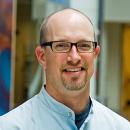The Division of Developmental Medicine is committed to providing an outstanding level of patient care, education and research.
The Developmental Medicine division evaluates and cares for children with conditions related to the development of the nervous system, including the brain. We specialize in the care of children with special needs, and tailor our services to the individual child and family.
We see children with many conditions, including: autism spectrum disorders, brain and nervous system problems, cerebral palsy (CP), developmental delays in language skills and in controlling muscle movement (motor skills), Hydrocephalus, Premature Birth, the evaluation and management of spasticity, Spina bifida and other neural tube defects, Tourette Syndrome (TS). We also provide prenatal consultation to mothers identified to have a fetus with central nervous system abnormalities in conjunction with the Prenatal Center.
For appointments, please call: Neurodevelopmental/Birth Defects Clinic: (206) 987-2210
The Division of Developmental Medicine researches a variety of topics, including:
- Dr. Bjornson's research is concerned with evidence-based clinical interventions to improve the activity and community-based mobility participation of persons with cerebral palsy and physical disabilities. A related interest is to develop a methodology to enable rigorous testing of the effectiveness of various current and emerging treatments (e.g., orthotics, physical activity/exercise, and physical therapy timing and frequency) on relevant outcomes (e.g., ambulatory and physical activity, participation in daily life).
- Dr. Cowan's interests in Autism Spectrum Disorders (ASDs) and involves research efforts in the past related to quality improvement, standardization of care and early diagnosis of ASDs.
- Dr. Doherty’s research interests focus on hindbrain malformations as a way to understand human brain development and common disorders such as intellectual disability, autism, ataxic cerebral palsy and even mental health disorders such as schizophrenia. His group uses a variety of genetic techniques (SNP mapping, array CGH, and high throughput sequencing) to identify the genes responsible for hindbrain malformation disorders such as Joubert syndrome, which immediately translates into molecular diagnostic testing, and detailed work on genotype-phenotype correlations improves diagnostic, prognostic and medical management information for patients.
- Dr. McLaughlin's research program is aimed at developing better treatments for persons with cerebral palsy and other disabilities. This includes studies of the long-term effects of selective dorsal rhizotomy and continuous intrathecal baclofen using an implantable pump. Dr. McLaughlin is involved in studies of the incidence of pain and fatigue in persons with cerebral palsy and in developing outcome measures for quality of life.
- Dr. Zinner pursues research with a strong focus on psychosocial and behavioral aspects of neurodevelopment, with a particular interest in Tourette syndrome and its associated conditions, including Attention Deficit Disorders, learning disabilities and anxiety disorders among others in the context of family and other social influences. Current research activities explore behavioral intervention for youth with Tourette syndrome; and barriers & successful strategies in effective pediatric residency training in DBP.
- Dr. Herzig's research interests focus on children with Down syndrome, congenital heart disease or other medically complex/genetic conditions and their access to appropriate developmental surveillance and health supervision.
Established in 1975, the Developmental Behavioral Fellowship program has a long history of producing leaders in developmental disabilities care, research, and education. This 3-year program is fully accredited and approved by the ACGME. Opportunities for collaboration with other internal and external fellowship programs allow our fellows to cross departmental and institutional lines to tailor a fellowship experience that best fits their interests.
For more information, please visit the Developmental Behavioral Pediatrics Fellowship page.
Seattle Children’s Hospital
4800 Sand Point Way NE
Box 359300, MS OC.9.845
Seattle, WA 98105
206-987-2210
